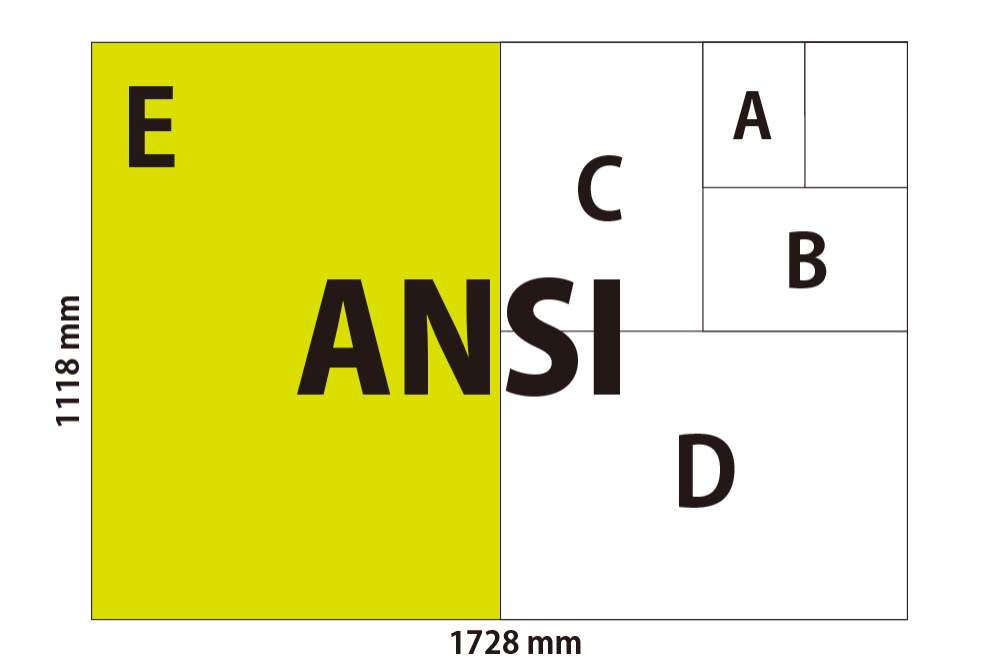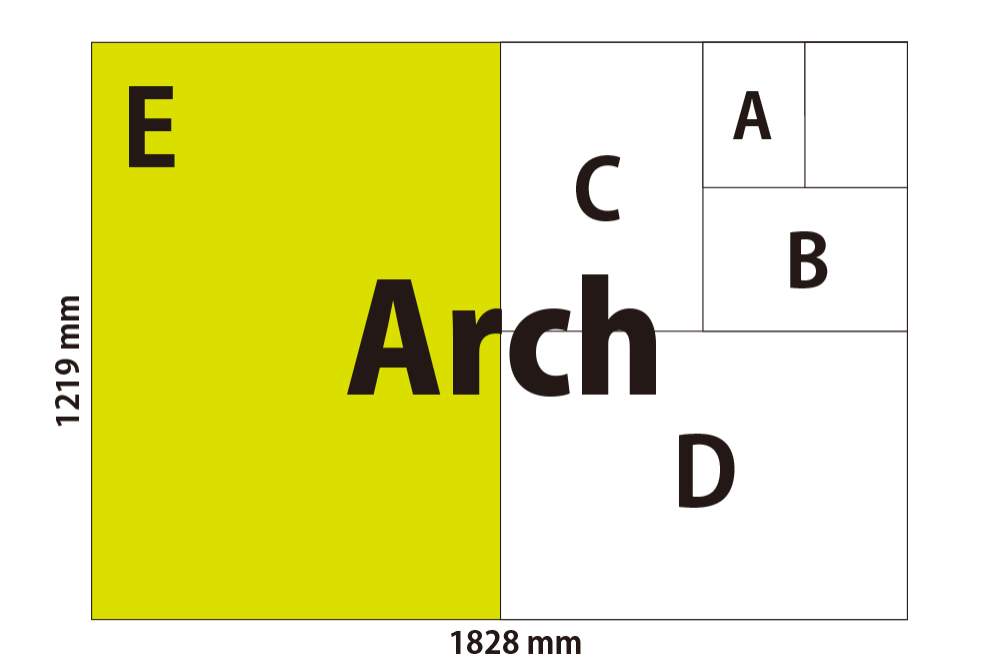North American paper sizes
Loose sizes
| Size | Width x Height (in) | Width x Height (mm) |
|---|---|---|
| Letter | 8.5 × 11 in | 216 × 279 mm |
| Legal | 8.5 × 14 in | 216 × 356 mm |
| Tabloid | 11 × 17 in | 279 × 432 mm |
| Ledger | 17 × 11 in | 432 × 279 mm |
| Junior Legal | 5 × 8 in | 127 × 203 mm |
| Half Letter | 5.5 × 8.5 in | 140 × 216 mm |
| Government Letter | 8 × 10.5 in | 203 × 267 mm |
| Government Legal | 8.5 × 13 in | 216 × 330 mm |
The United States, Canada, and the Philippines primarily use a different system of paper sizes from the rest of the world. The current standard sizes are unique to those countries, although due to the size of the North American market and proliferation of both software and printing hardware from the region, other parts of the world have become increasingly familiar with these sizes (though not necessarily the paper itself). Some traditional North American inch-based sizes differ from the Imperial British sizes described below.
Common loose sizes
Letter, Legal and Ledger/Tabloid are by far the most commonly used of these for everyday activities, and the only ones included in Cascading Style Sheets (CSS).
The origins of the exact dimensions of Letter size paper (8 1⁄2 in × 11 in or 216 mm × 279 mm) are lost in tradition and not well documented. The American Forest and Paper Association argues that the dimension originates from the days of manual paper making, and that the 11-inch length of the page is about a quarter of “the average maximum stretch of an experienced vatman’s arms.” However, this does not explain the width or aspect ratio.
Outside of North America, Letter size may also be known as “American Quarto”. If one accepts some trimming, the size is indeed one quarter of the old Imperial paper size known as Demy, 17 1⁄2 in × 22 1⁄2 in (444 mm × 572 mm).
ANSI Sizes

| Size | Width x Height (in) | Width x Height (mm) |
|---|---|---|
| ANSI A | 8.5 × 11 in | 216 × 279 mm |
| ANSI B | 11 × 17 in | 279 × 432 mm |
| ANSI C | 17 × 22 in | 432 × 559 mm |
| ANSI D | 22 × 34 in | 559 × 864 mm |
| ANSI E | 34 × 44 in | 864 × 1118 mm |
The American National Standards Institute (ANSI) adopted ANSI/ASME Y14.1, which defined a series of paper sizes in 1996, based on the standard 8.5 inches x 11 inches (216mm x 279mm) Letter size, which was named ‘ANSI A’. This series is fairly similar to the ISO standard, in that if you cut a sheet in half, you will product two sheets of the next smaller size. Ledger/Tabloid is known as ‘ANSI B’. The most common and widely used size is ANSI A, also known as ‘Letter’.
Architectural Sizes

| Size | Width x Height (in) | Width x Height (mm) |
|---|---|---|
| Arch A | 9 × 12 in | 229 × 305 mm |
| Arch B | 12 × 18 in | 305 × 457 mm |
| Arch C | 18 × 24 in | 457 × 610 mm |
| Arch D | 24 × 36 in | 610 × 914 mm |
| Arch E | 36 × 48 in | 914 × 1219 mm |
| Arch E1 | 30 × 42 in | 762 × 1067 mm |
| Arch E2 | 26 × 38 in | 660 × 965 mm |
| Arch E3 | 27 × 39 in | 686 × 991 mm |
The Architectural series (ARCH) is used by architects in North America, and they prefer to use this series instead of ANSI, because the aspect ratios are ratios of smaller whole numbers (4:3 and 3:2). The ARCH series of paper sizes is defined in the ANSI/ASME Y14.1 standard. The ARCH sizes are commonly used by architects for their large format drawings.
| A series | B series | C series | US sizes | US Envelope |
| International Envelope | Photography Paper | Canadian | Japanese | Books |
| Newspaper | Chinese | Billboard | Imperial | Colombian |
| French | Raw | Transitional |

Comments